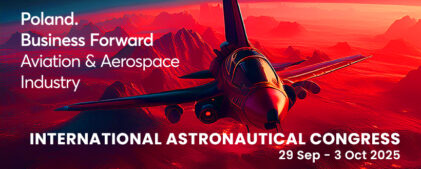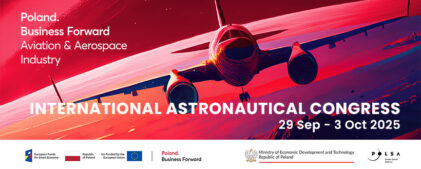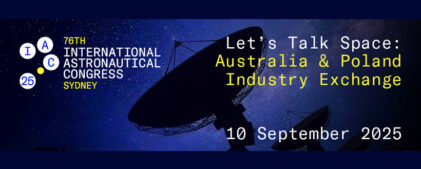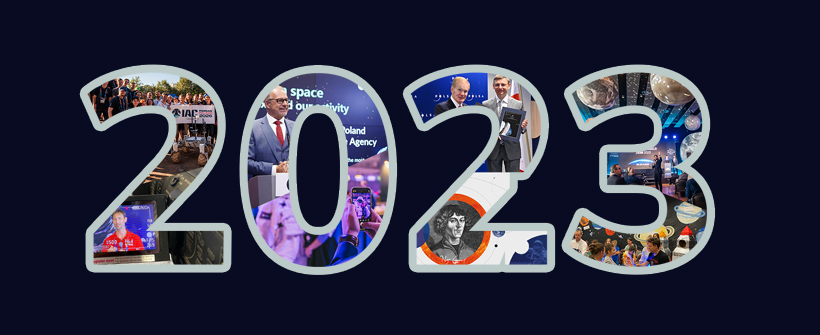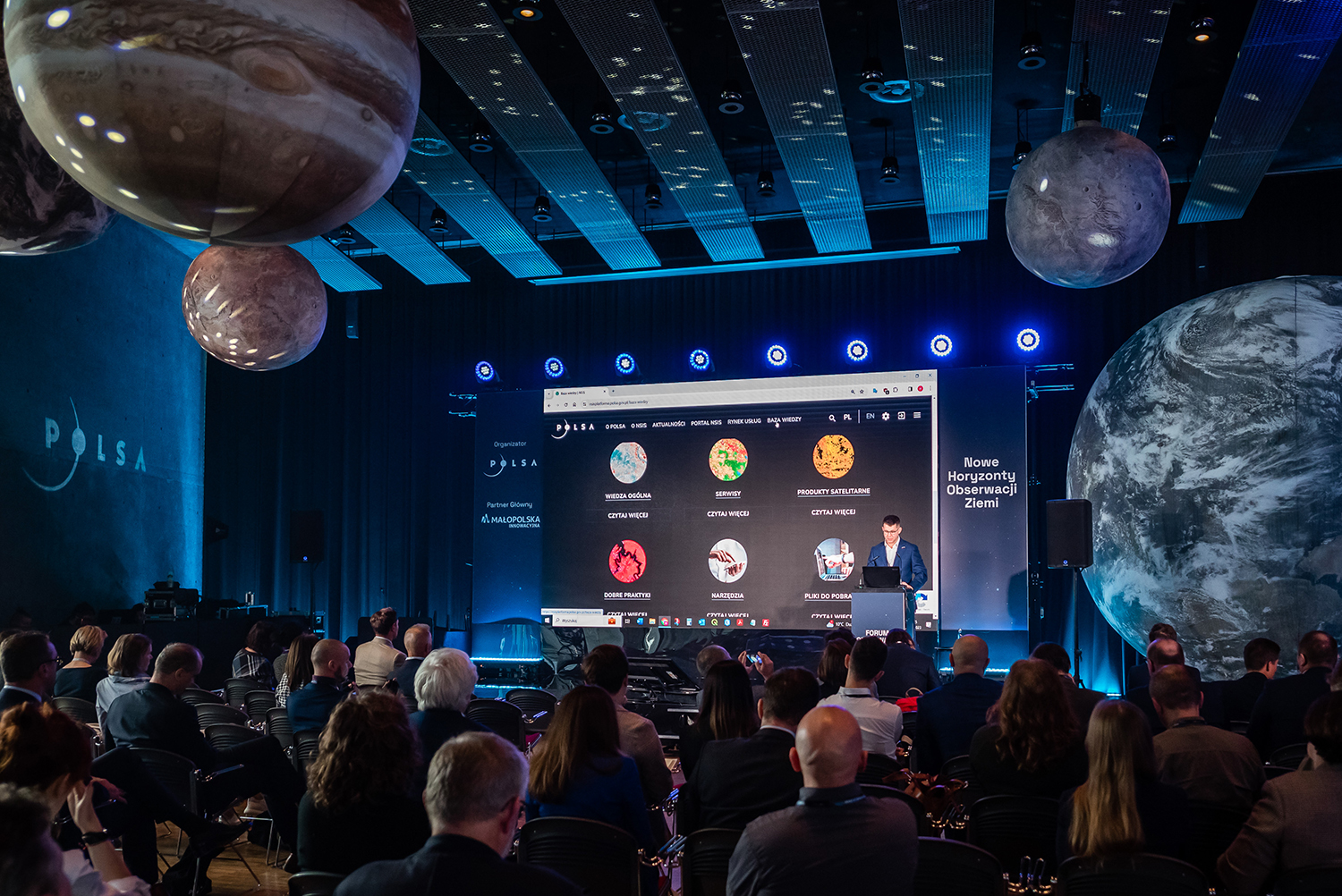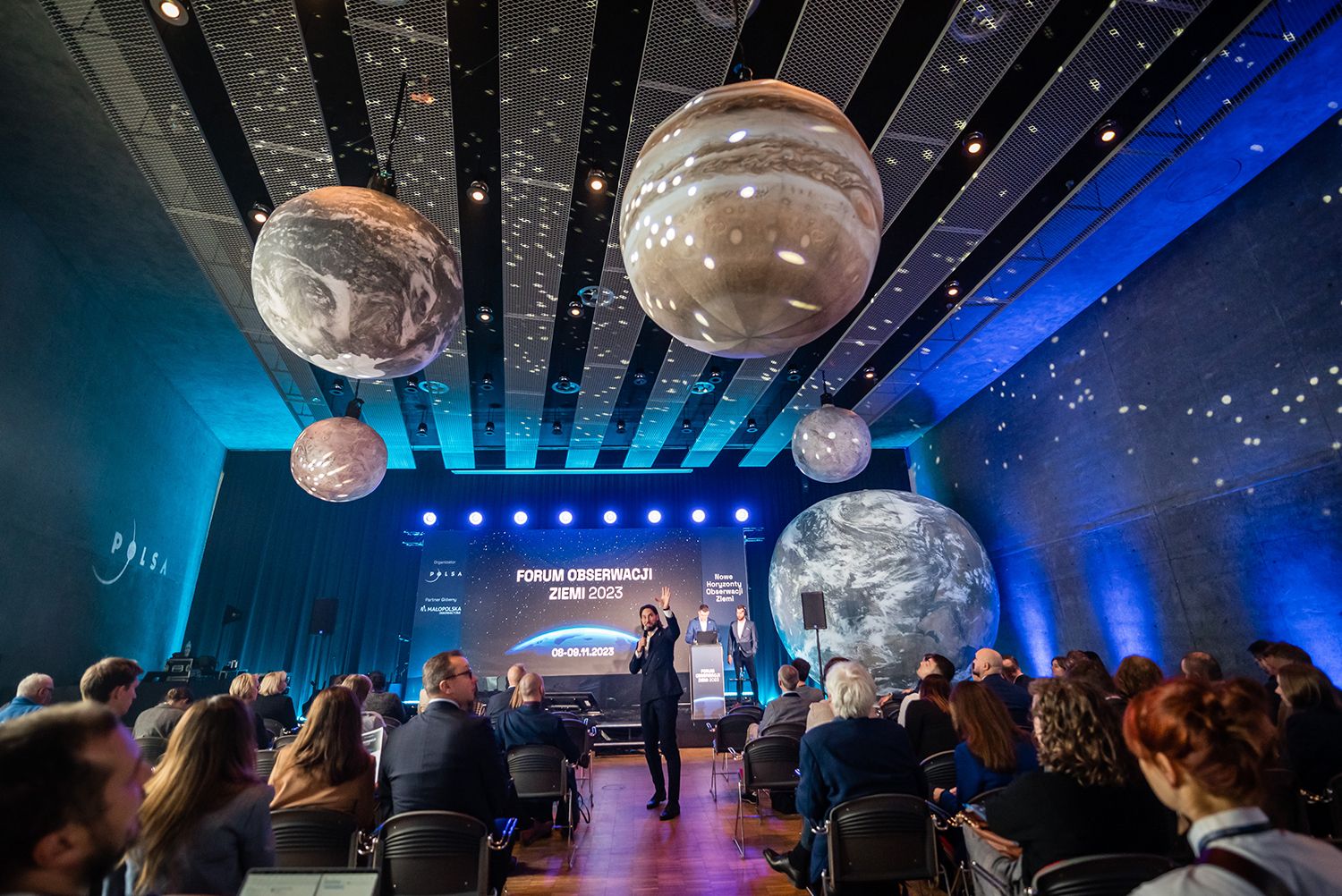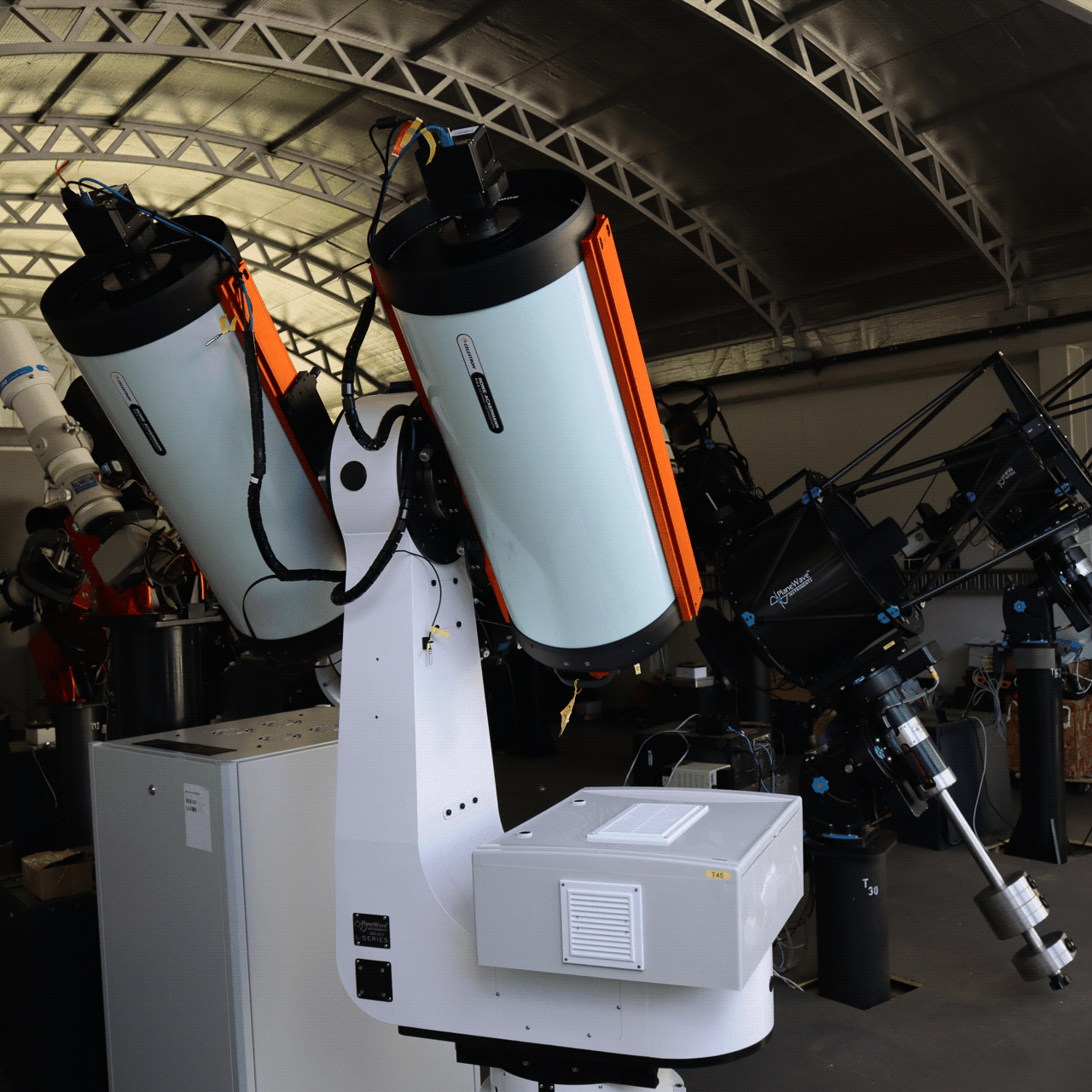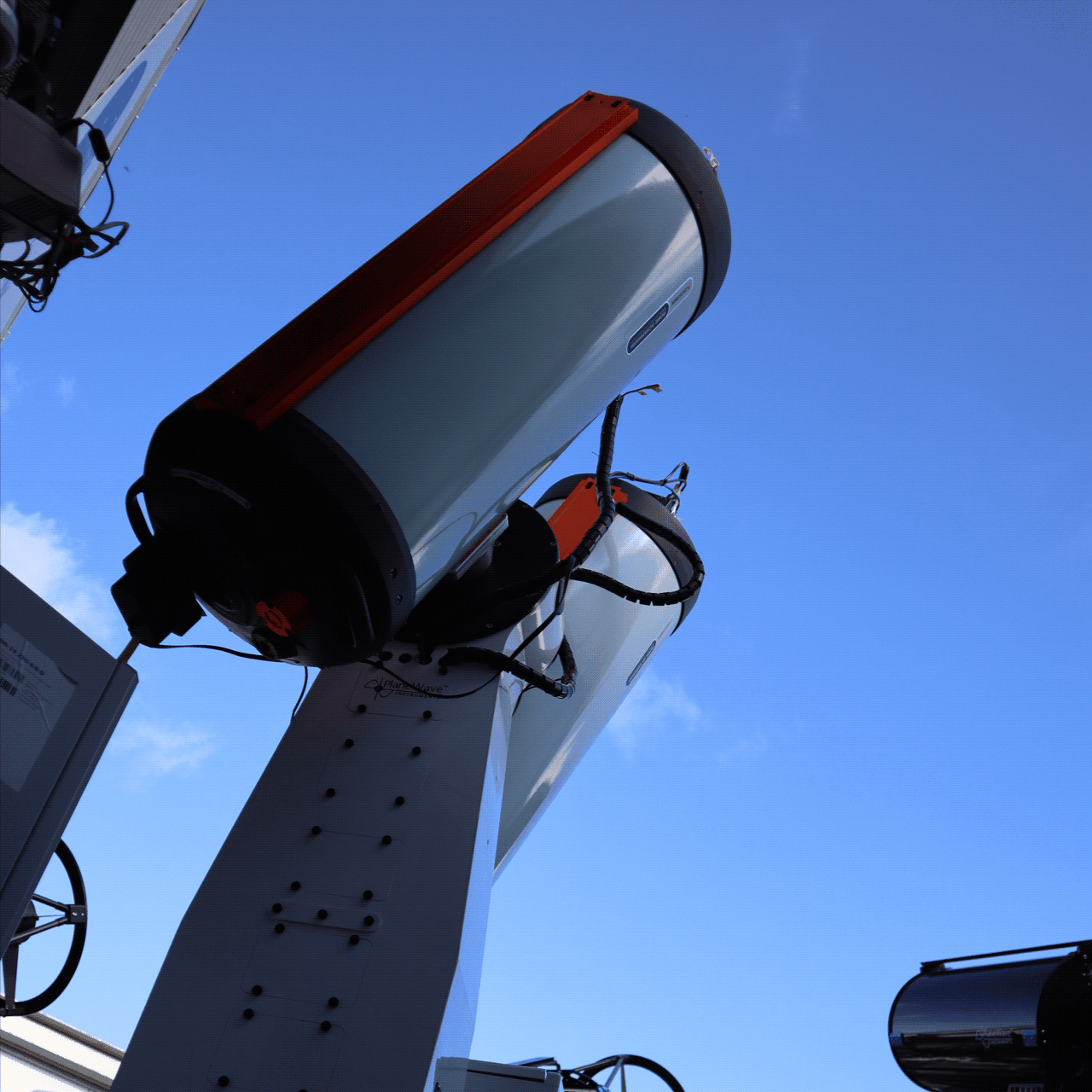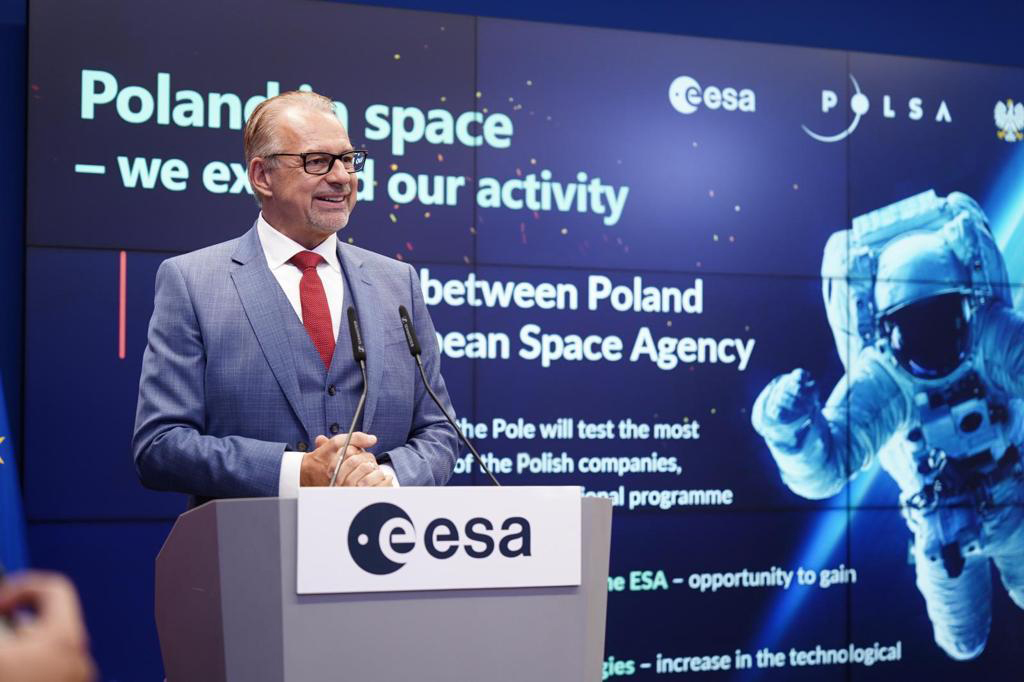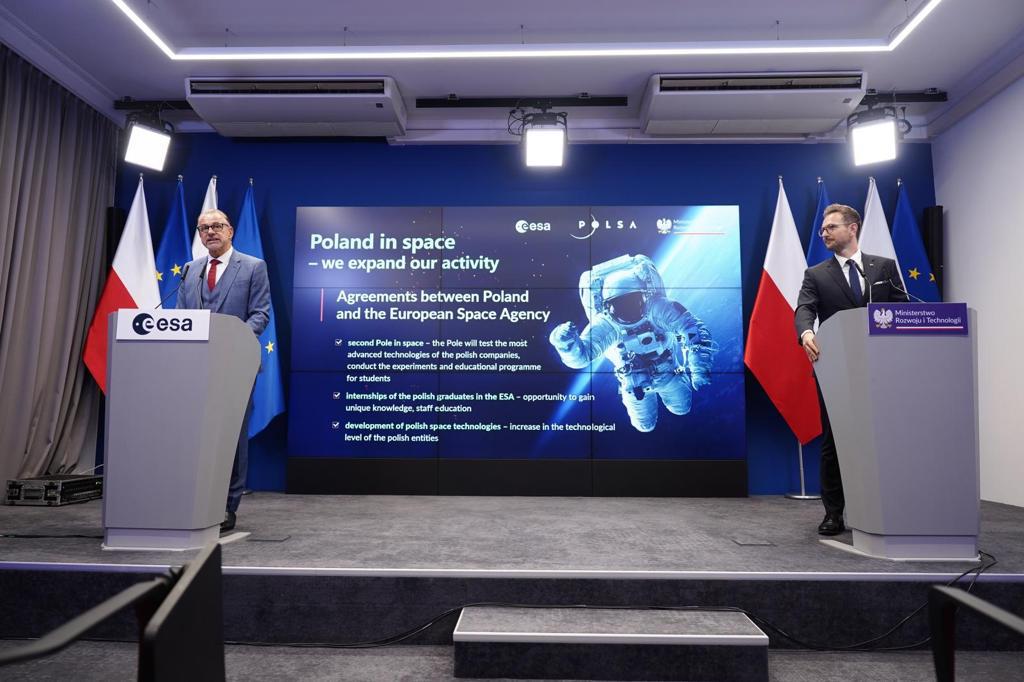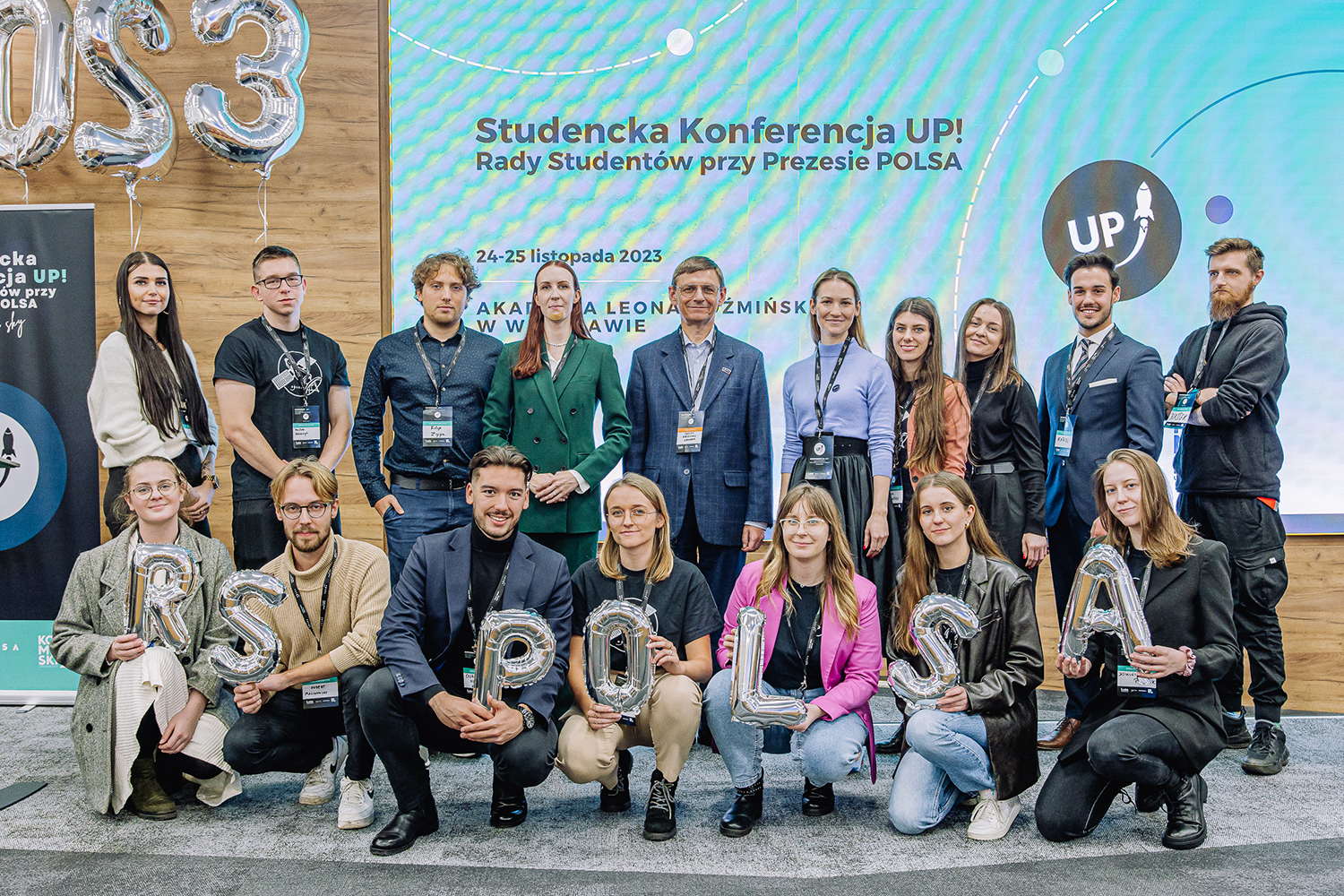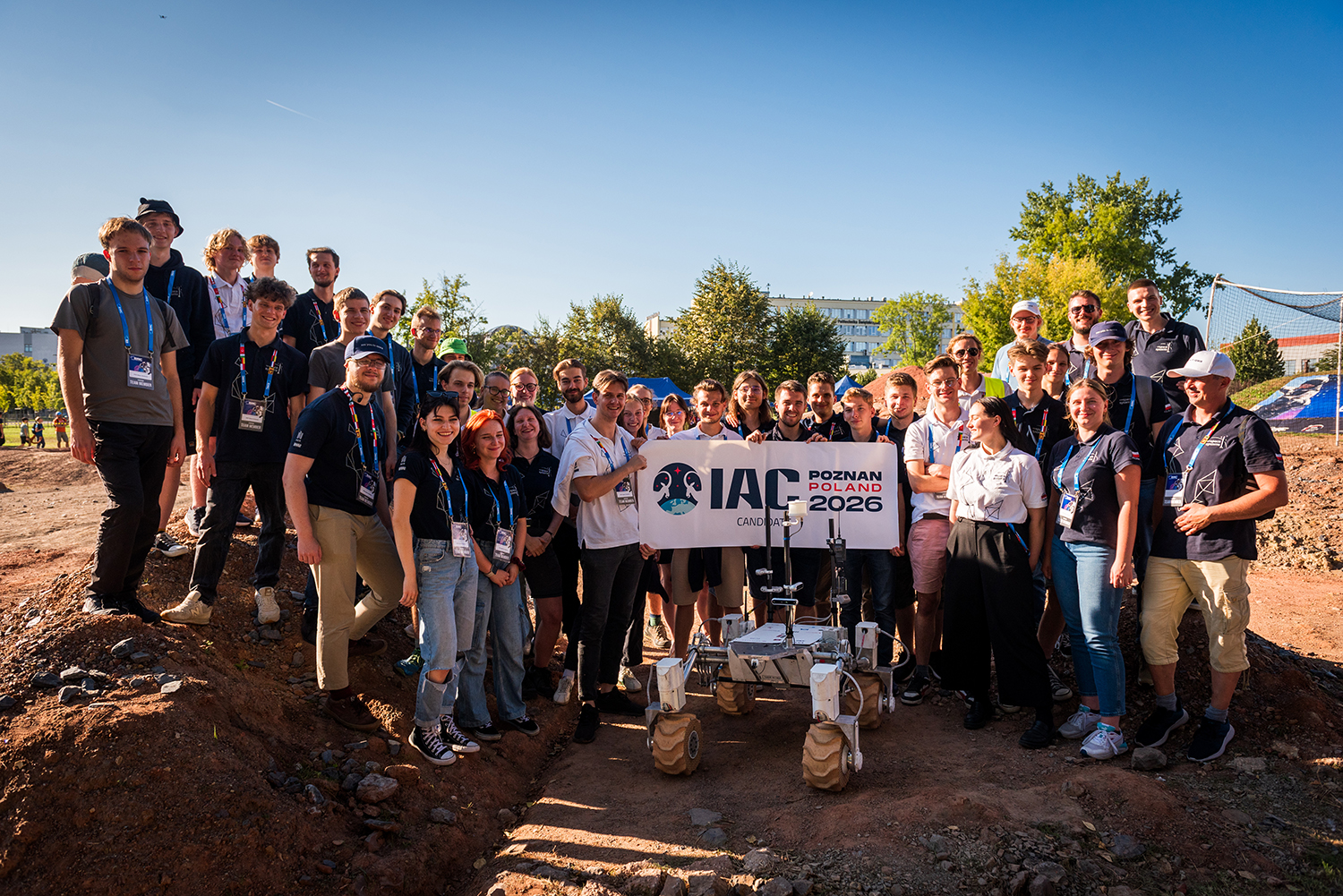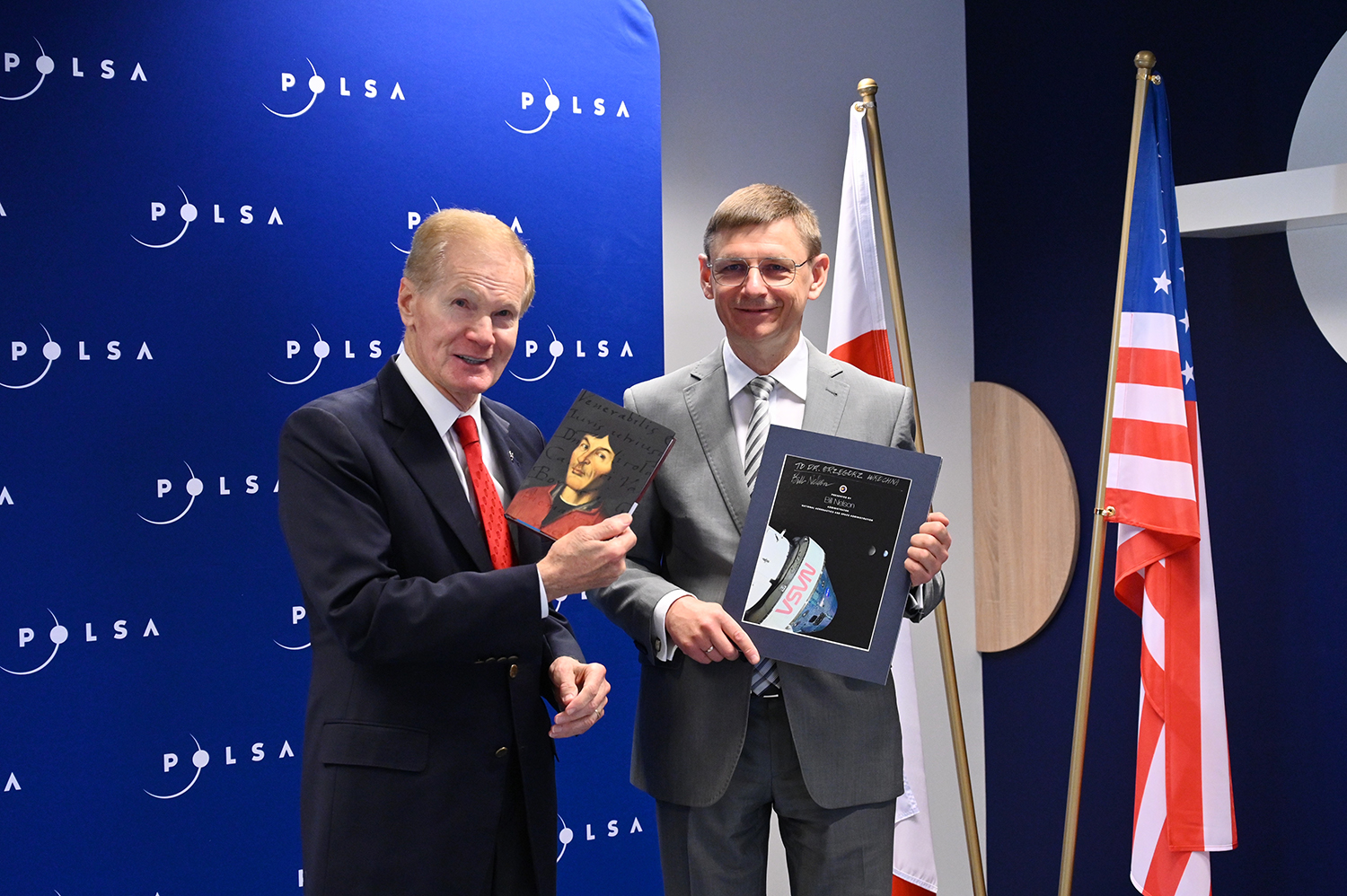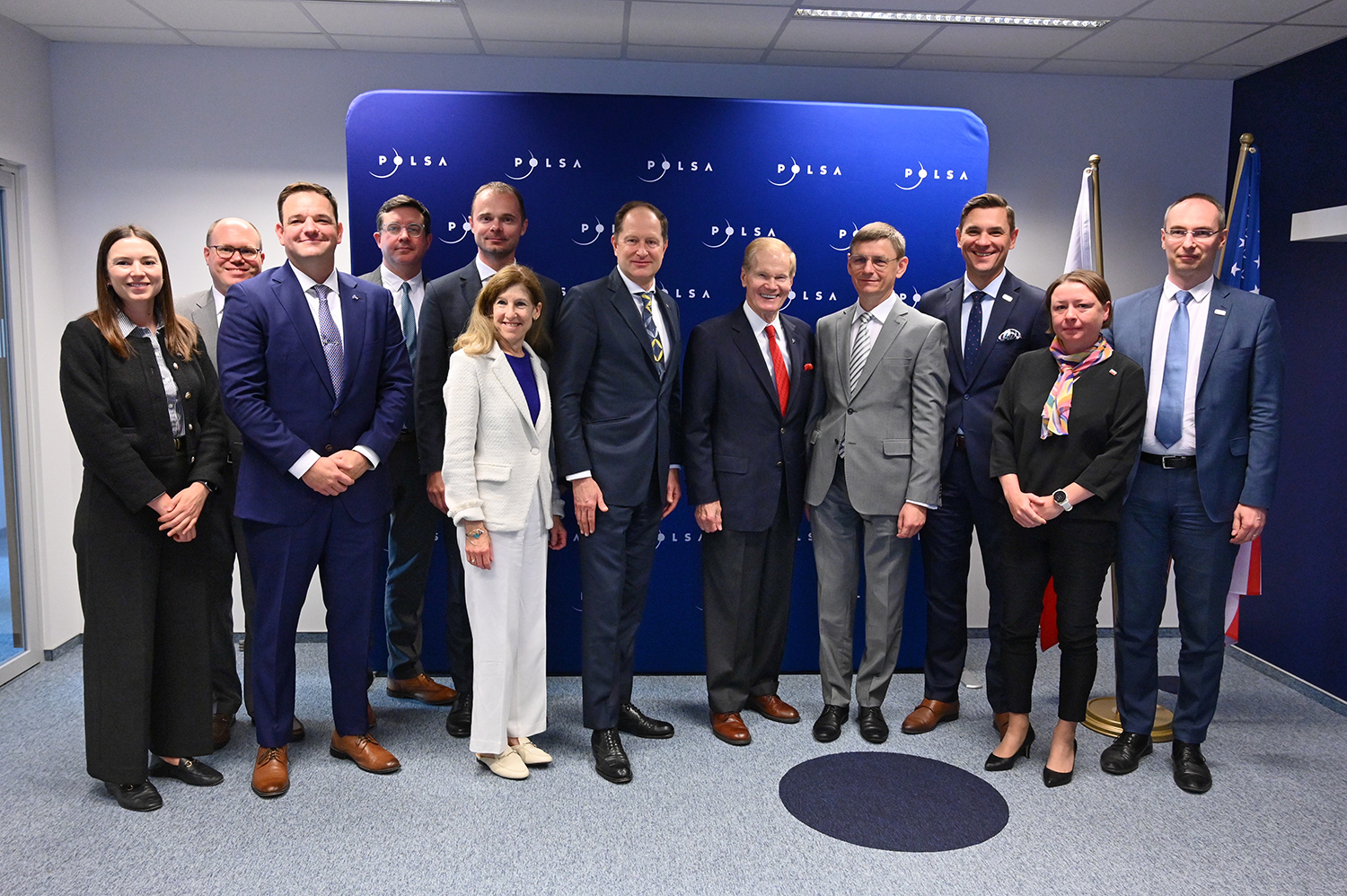The year 2023, marking the 550th anniversary of Nicolaus Copernicus’ birth, witnessed a significant Copernican upheaval in space technologies in Poland. A several-fold increase in the budget allocated to projects within the framework of the European Space Agency elevated Poland into the group of countries making the most substantial investments in these technologies and poised to reap significant benefits in the future. POLSA played a crucial role in this transformation by preparing the justification for the budget increase, outlining priority development directions, and providing specifications for the construction of Polish satellites. Additionally, over the past several months, there has been intensive work on the Polish mission to the International Space Station, where home-grown technology will be tested. However, these activities represent only a part of POLSA’s comprehensive efforts in 2023.
The past year was full of challenges and at the same time special, particularly due to its patron, Nicolaus Copernicus, in celebration of the 550th anniversary of this great scientist’s birth. In 2023, the Polish Space Agency (POLSA) actively worked to bring Poland closer to space in scientific, technological, commercial, industrial, and utilitarian terms. This effort aimed to contribute to the development of one of the world’s most forward-looking economic fields.
We have prepared a comprehensive summary of the Polish Space Agency’s activities in space specialties: earth observation, space security, satellite telecommunications and navigation, as well as national and international space policy.
EARTH OBSERVATION
Construction contract of Polish observation satellites under the bilateral program with ESA, known as the CAMILA project
In October 2023, the Ministry of Development and Technology signed a contract with ESA for constructing a constellation of Polish observation satellites. ESA experts will supervise the work of Polish companies implementing the project, allowing them to gain valuable experience in satellite construction and launch. This expertise can then be applied to meet the country’s needs and for export purposes. Consequently, Poland’s satellite observation capabilities will increase, enabling the creation of monitoring services based on high-resolution data. These services will be beneficial in various sectors, including agriculture, land management, and emergency situations.
As part of the project, a minimum of 4 prototype satellites will be built, comprising at least 3 optoelectronics satellites and 1 radar satellite. Their launch is planned for 2027.
Pilot version of the National Satellite Information System (NSIS)
POLSA launched a pilot version of the National Satellite Information System (NSIS) in the middle of the year 2023. This national interoperable system is designed for receiving, storing, processing, and sharing satellite data, accompanied by the necessary infrastructure. Its primary purpose is to offer monitoring services, satellite products, analytical tools, and services based on satellite data. The system provides data and information, primarily supporting the public administration in executing tasks, decision-making, optimizing ICT resources and infrastructure utilization, and more.
The Earth Observation Forum 2023
The next edition of the POLSA event, the Earth Observation Forum, which took place in Kraków on November 8–9, 2023, addressed key topics such as artificial intelligence in image analysis, detection and classification of objects in SAR imagery, environmental monitoring, and coping with climate change. The Forum is gaining popularity each year, reflecting the increasing significance of satellite data in various aspects of life.
TELECOMMUNICATIONS AND SATELLITE NAVIGATION
Development plans for a Polish telecommunications satellite
POLSA has commissioned the Warsaw University of Technology to conduct an analysis of the feasibility of acquiring a national telecommunications satellite in geostationary orbit. The study encompasses a technical description of the system components, including the telecommunications satellite and the ground segment (teleport and satellite control center). Special emphasis was placed on high-capacity broadband systems, particularly those with multiple antenna beams, known as High-Throughput Satellites (HTS).
Governmental satellite communications
In October 2023, POLSA hosted a meeting with government and industry representatives. The objective was to provide updates on the implementation of the EU’s secure government satellite communications program, GOVSATCOM, as well as the new constellation of telecommunications satellites in low orbits under the European IRISS system. Additionally, the meeting aimed to discuss the current state of the satellite telecommunications sector in Poland and the conditions for its development.
As Poland prepares to participate in the GOVSATCOM program, POLSA actively engaged in the activities of the EU GOVSATCOM Expert Group. The anticipated launch of the EU’s GOVSATCOM program prompted intensified efforts by the program committee and working groups, focusing on tasks in both technical and application areas. POLSA’s employees actively contributed to the work of these groups. The first services of GOVSATCOM EU are scheduled for the fourth quarter of 2024.
ENTRUSTED project
The European ENTRUSTED project served as one of the preparatory activities for the EU GOVSATCOM initiative. The primary goal of GOVSATCOM is to ensure guaranteed, reliable, and cost-effective access to secure SatCom services for government users in EU member states and institutions, along with agencies overseeing security-critical missions and operations. POLSA played a key role as the project manager and leader of one of the work packages.
GEXTRECX project
In 2023, POLSA became a member of a consortium for a new project named GEXTRECS. This project aims to define and demonstrate an end-to-end GOVSATCOM service, specifically designed to support crisis management through innovative and integrated use cases. GEXTRECS focuses on crisis management for massive, extreme events—both natural and man-made—that may occur within, adjacent to, or outside the EU, as part of the defined GOVSATCOM services.
SPACE SECURITY
New observatories
In June 2023, POLSA initiated the launch of three observatories with the purpose of detecting and tracking Earth’s artificial satellites and other objects, including space debris. These observations are essential for safeguarding Polish and allied satellites against collisions and providing early warnings about the descent of rocket and satellite debris to Earth. Telescopes have been strategically positioned in Australia, Southern Africa, and South America. Thanks to these installations, the agency has fortified its position in Europe as a leader in satellite protection in orbit.
Information services for public administration
Since April 2023, POLSA has been issuing weekly space situation reports on Earth’s artificial satellites to national public administration institutions. These reports encompass data such as the numbers of satellites in space and anticipated changes, including the launch of new objects and the expected re-entry of old satellites and space debris into the atmosphere. POLSA also provides information regarding potential collisions involving satellites of Polish origin and the expected entry into the atmosphere of various space objects over Polish territory.
Signed agreement with USSPACECOM and the Ministry of Defense
In April 2023, POLSA signed an agreement with the Polish Ministry of Defense and the US Space Force (USSPACECOM) to facilitate the exchange of information on the current orbital location of artificial space objects.
POLSA has been awarded new EU grants with a budget totaling around 3 million euros
POLSA is sustaining its collaboration in the construction and operation of the European Space Surveillance and Tracking system (EUSST) for tracking satellites around the Earth, on behalf of the European Commission. Over the period between 2023 and 2026, the agency is set to receive approximately 3 million euros for operational activities, satellite observation, and various administrative and development tasks. This includes plans to establish secure communication between sensors distributed globally and the POLSA Operations Center.
NATIONAL SPACE POLICY
Enhancing Poland’s engagement and activities within the European Space Agency
In August 2023, the Ministry of Development and Technology allocated an additional 360 million euros for activities within the European Space Agency (ESA) for the period 2023–2025. Out of this sum, 200 million euros are designated for Poland’s participation in ESA programs. This substantial contribution positions Poland to play a pivotal role in over a dozen projects, with more than 90% of the funds benefitting Polish companies and scientific institutions involved in project implementation. Specifically, 85 million euros will be allocated for the construction of the CAMILA constellation mentioned above. Another 7 million euros will be dedicated to the development of selected technologies in Poland. A further 3 million euros will facilitate internships at ESA for graduates of Polish universities. The remaining funds will be earmarked for a technological mission to the International Space Station (ISS). This mission will involve the second Polish astronaut in the country’s history, flying into space and, for the first time, to the ISS. During this mission, the astronaut will conduct experiments prepared by Polish engineers and scientists.
Experiments on the ISS
POLSA, in collaboration with other institutions, organized a call for experiments to be conducted by a Polish astronaut on the International Space Station (ISS). The call received submissions for 66 experiments spanning various fields, including astrophysics, medicine, astronauts’ well-being during extended space travel, microbiology, and space technologies. POLSA is actively coordinating the implementation of these experiments during the anticipated flight, expected to take place in the fall of 2024.
ESA National Trainee Program
In November and December 2023, POLSA conducted an enrollment for applications for the Polish ESA National Trainee Program. The project, valued at 3 million euros, will encompass 30 two-year paid internships at ESA. The program aims to facilitate the acquisition of valuable experience in the development and operation of space missions, providing an opportunity to gain broad professional competence while working in an international environment.
Lunar mission
The planned return of humans to the moon and the potential utilization of lunar resources in the future are poised to open new perspectives for scientific research and create fresh opportunities for the space industry. Recognizing this potential for both industry and science, POLSA initiated sector consultations on a Polish lunar mission. These consultations concluded exactly a year later, in May 2023, with the identification of a priority project for Poland: deploying the MIRORES instrument into orbit around the Moon. This instrument will create maps of raw material deposits on the Silver Globe, marking areas of strategic importance for future lunar bases.
Promotion of the domestic space sector abroad
As part of efforts to support the domestic space sector, POLSA engages in promoting it in foreign markets through the organization of promotional stands at major trade fairs and conference events dedicated to space. Some of the key international events where space companies showcase their capabilities at POLSA stands include Avalon 2023 in Melbourne, the International Astronautical Congress (IAC) in Baku, and Space Tech Expo in Bremen.
SPACE EDUCATION AND PROMOTION
Another task undertaken by POLSA was to enhance interest in space among the future generation, including children, young people, and students. In 2023, the agency collaborated as a partner in various educational events and continued several original initiatives.
Award for the best diploma thesis
The project, conducted in collaboration with the Academic Space Network, received submissions in this year’s competition, which concluded in early October. The entries included 22 master’s theses, 20 bachelor’s and engineering theses, and 7 doctoral theses.
The Student Council of the President of the Polish Space Agency
The Student Council is an interdisciplinary advisory body consisting of students from Polish universities with a keen interest in the development of the space sector. It represents students and student organizations. The highlight of the Student Council’s activities this year was the UP! Student Conference, held in Warsaw on November 25–26. Participants delved into topics such as the latest research and developments in astronomy, astrophysics, and space law.
The Al Worden ‘Endeavour’ Scholarship, Poland Team 2024
A slightly younger group of recipients, aged 15–18, had the opportunity to participate in the competition co-organized by POLSA for Al Worden’s Endeavour Scholarship, Poland Team 2024. As early as July 2024, four students will embark on a week’s training at the renowned Space & Rocket Center in the United States.
‘My Space Holidays’ artistic contest
The youngest, i.e., elementary school children, can embark on their adventure with space through participation in POLSA’s annual ‘My Space Holidays’ contest, which includes artwork, literary, audiovisual, and a combination of these techniques. The current edition of the contest garnered significant interest, with almost 250 competition works submitted from all over Poland.
Space education
In 2023, POLSA took patronage to 60 diverse events, including conferences, congresses, and festivals of scientific and popular science events focusing on space and technology issues. Additionally, the agency actively participated in and co-organized several of these initiatives.
As an illustration of such activities, POLSA’s involvement in the European Rover Challenge stands out. The event, held from September 15 to 17 at the Kielce University of Technology, is recognized as Europe’s largest space and robotics event. It combines a competition featuring Mars rovers constructed by student teams with science and technology demonstrations open to the public. Notably, among the 25 teams from 12 countries, the winning rover was exhibited by the Poles, specifically the AGH Space Systems team from AGH University of Science and Technology in Cracow.
Space is a realm of robust international cooperation, with most missions exploring other planets and the distant universe conducted by multinational consortia. Satellite communications and navigation systems must meet international standards. EU Earth observation, navigation, and satellite telecommunications are being developed. Moreover, international agreements are essential for the utilization of the increasingly congested orbit around the Earth and the surface of the Moon. POLSA actively fulfills its responsibilities, participating in international organizations and bodies that address these crucial topics.
POLSA-ESA
Poland, having been member since 2012, has a significant presence in the European Space Agency. This means that POLSA representatives serve as permanent delegates in all ESA mandatory and optional programs. In these roles, collective decisions are made on various aspects, including the direction of activities in specific areas in both the short and long term. Poland’s influence within ESA is increasingly prominent, with POLSA’s high level of substantive preparation being widely recognized. Dr. Aleksandra Bukała, the Director of the Strategy and International Cooperation Department, has assumed the role of Vice Chairwoman of one of ESA’s strategic entities—the Industrial Policy Committee (IPC). It is anticipated that with the increase in Poland’s contribution to ESA, the country’s role within the agency will continue to expand.
Due to the excellent collaboration between POLSA and ESA, Poland had the honor of hosting the 30th-anniversary celebration of one of ESA’s key programs—the GSTP (General Support Technology Program). The two-day conference, attended by nearly 200 ESA participants from across Europe, took place on September 26–27 in Gdańsk, Poland.
POLSA-NASA
On June 1, 2023, POLSA had the privilege of hosting NASA Administrator Bill Nelson. The meeting focused on strengthening cooperation and engaging in discussions regarding Poland’s participation in future US projects.
A dozen days after the NASA chief’s visit to Warsaw, POLSA organized a session in Gdańsk for representatives from 15 out of the 25 countries signatory to the Artemis Accords declaration. This declaration defines the principles of international cooperation in the exploration of celestial bodies, particularly within the framework of the Artemis lunar program organized by NASA. Over the course of three days, participants developed recommendations, which were later presented in October 2023 during a meeting of the heads of space agencies from Artemis Accords declaration signatory countries. The meeting was led by NASA, JAXA, and POLSA and took place at the International Astronautical Congress (IAC) in Baku.
POLSA representatives actively participated in the Moon to Mars workshop, organized by NASA and UKSA at London’s Royal Institution. The workshop was dedicated to the development of lunar infrastructure.
In 2023, POLSA sustained its strategic partnership with the Jet Propulsion Laboratory (JPL), one of NASA’s research centers, which was initiated in November 2022. The agency’s role in this ongoing project is to strengthen the capabilities within the space sector, focusing on potential future collaborations between Polish companies and JPL. The most recent meeting, featuring the participation of key players in the space sector and NASA JPL engineer and mission manager Artur Chmielewski, took place on December 7.
Prof. Grzegorz Wrochna, the President of the Polish Space Agency
As we come together to celebrate Christmas or New Year’s Eve, we often exchange wishes for the dreams we hope to realize in the coming year. Looking back, the year 2023 not only fulfilled Polish space dreams but surpassed them significantly. In 2022, could we have imagined that Poland would coordinate the participation of other countries in NASA’s Artemis program, plan its own lunar mission, and, most notably, emerge at the forefront of European countries investing in space technology? Additionally, with the involvement of a Polish astronaut, conducting experiments on the International Space Station became a reality.
Thanks to a substantial increase in the budget allocated for projects within the European Space Agency, Poland has ascended to the ranks of the ‘top 7’ member countries. However, we perceive this contribution not as an expense but as a strategic investment. Almost all the funds directed to the ESA, based on the principle of geographical distribution, will circulate back to Poland in the form of agreements, orders, and contracts with the Polish space sector. This, in turn, will catalyze even more dynamic development. Several strategic benefits emerge from this investment. I am confident that it will elevate the competence and competitiveness of the Polish space sector, enabling us to satisfy the majority of the country’s space technology needs independently and generate significant revenue from exports. Additionally, it opens up possibilities for substantial Polish participation in key ESA missions and programs, including scientific and exploration missions. We also have the opportunity to ascend in the supply chain, transitioning from a component supplier to a supplier of systems or subsystems. There is a chance for us to become a mission integrator. I firmly believe that this success will pave the way for even greater achievements in the near future.
I take immense pride in the achievements of the Polish space sector. Our engineers and scientists have successfully executed numerous advanced technological projects. Polish companies and scientific institutions are playing crucial roles in international scientific missions, contributing by constructing sophisticated instruments, launching satellites, and providing an expanding array of products and services using satellite data. While currently riding a wave of success, this is merely the beginning. The growing maturity of our market is evident in the significant interest garnered by the competition to implement experiments on the ISS, with a remarkable 66 experiment concepts submitted. It’s noteworthy that this is a relatively young sector, taking shape just 12 years ago with Poland’s entry into the ESA. Adding to this achievement is the fact that domestic experiments on the ISS will be conducted by a Polish astronaut set to journey into space in just a dozen months. I believe we can all share in this collective sense of pride.







 Back
Back